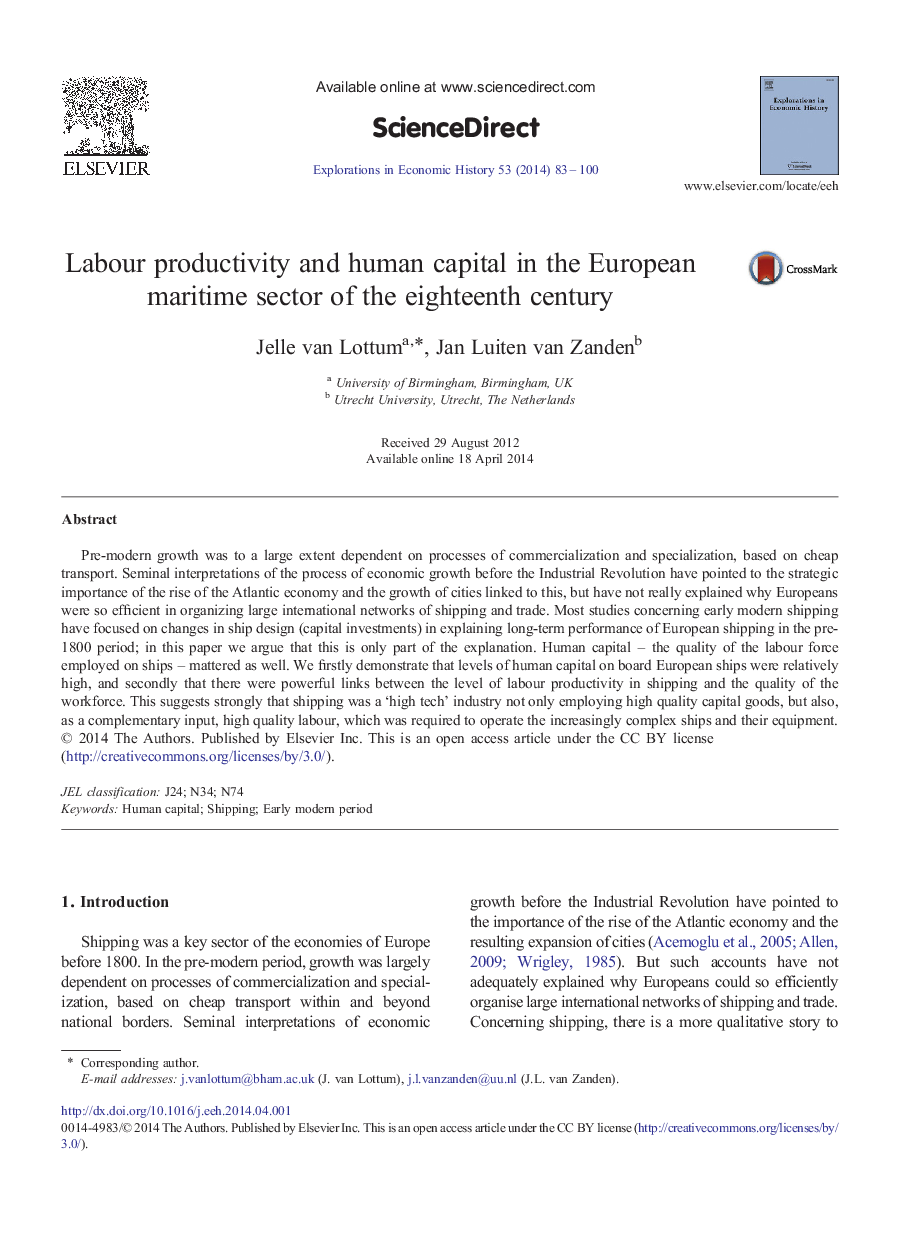| کد مقاله | کد نشریه | سال انتشار | مقاله انگلیسی | نسخه تمام متن |
|---|---|---|---|---|
| 5068706 | 1476974 | 2014 | 18 صفحه PDF | دانلود رایگان |
- Human capital of on board European ships was relatively high.
- Shipping was a high tech industry employing quality labour.
- There was a strong link between human capital of common workers and labour productivity.
Pre-modern growth was to a large extent dependent on processes of commercialization and specialization, based on cheap transport. Seminal interpretations of the process of economic growth before the Industrial Revolution have pointed to the strategic importance of the rise of the Atlantic economy and the growth of cities linked to this, but have not really explained why Europeans were so efficient in organizing large international networks of shipping and trade. Most studies concerning early modern shipping have focused on changes in ship design (capital investments) in explaining long-term performance of European shipping in the pre-1800 period; in this paper we argue that this is only part of the explanation. Human capital - the quality of the labour force employed on ships - mattered as well. We firstly demonstrate that levels of human capital on board European ships were relatively high, and secondly that there were powerful links between the level of labour productivity in shipping and the quality of the workforce. This suggests strongly that shipping was a 'high tech' industry not only employing high quality capital goods, but also, as a complementary input, high quality labour, which was required to operate the increasingly complex ships and their equipment.
Journal: Explorations in Economic History - Volume 53, July 2014, Pages 83-100
